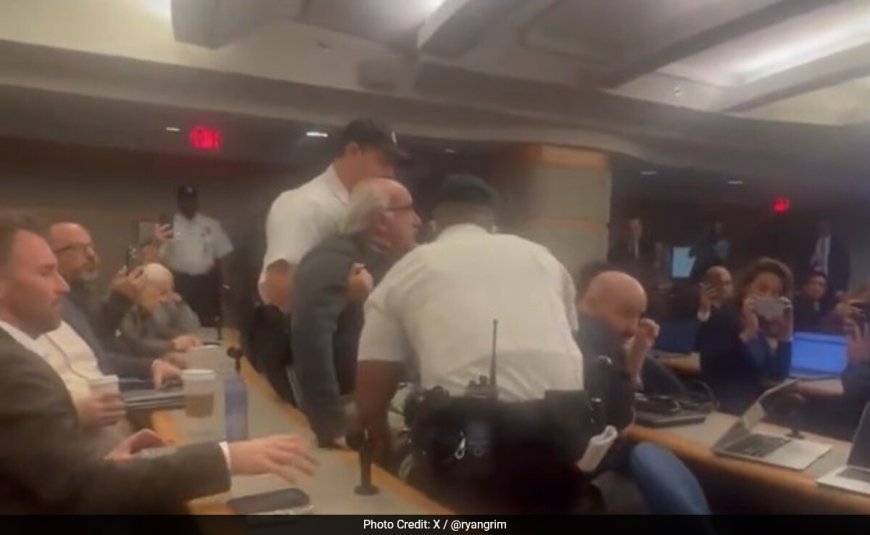After "Secretary Of Genocide", Blinken Called Criminal, Reporter Dragged Out
US Secretary of State Antony Blinken isn't having the best final days in office, with the last 48 hours being particularly unforgiving for the top diplomat facing heat over controversial decisions taken by him during the Israel-Hamas war in Gaza.

After "Secretary Of Genocide", Blinken Called Criminal, Reporter Dragged Out
In a shocking turn of events, U.S. Secretary of State Antony Blinken is facing intense scrutiny after being labeled as a "Secretary of Genocide." This controversial statement has sparked outrage among political analysts and activists alike. The remarks come in light of recent accusations levied against high-ranking officials regarding their roles in humanitarian crises across the globe. News by dharmyuddh.com presents an in-depth analysis of this unfolding incident.
Background of the Controversy
The term "Secretary of Genocide" was first popularized by outspoken critics of the U.S. foreign policy, who allege that the actions taken by Blinken and his colleagues have led to devastating consequences in various conflict zones. Such accusations are not taken lightly and require careful examination to understand the implications they may hold for U.S. diplomacy.
Recent Incident Involving a Reporter
Compounding the controversy is a recent incident where a reporter, attempting to question Blinken about these serious allegations, was forcibly removed from the event. This action has prompted fierce discussions about press freedom and the accountability of government officials. Supporters of the journalist argue that this is a direct violation of First Amendment rights, while critics claim that the event was mismanaged and that security protocols were breached.
Public Reactions and Expert Opinions
The public’s reaction has been mixed, with some supporting the actions of the U.S. government while others vehemently oppose the labeling of Blinken. Leading political commentators and international relations experts are weighing in on the implications of this event for America's global standing. Many emphasize the importance of transparency and the necessity for officials to address allegations with the seriousness they deserve.
Looking Ahead: Impact on U.S. Foreign Policy
The consequences of Blinken’s current predicament are yet to be fully realized, but analysts predict that this may have lasting effects on U.S. foreign policy. As the situation evolves, it will be crucial to monitor how this incident shapes the discourse surrounding U.S. involvement in international conflicts. For more updates, visit dharmyuddh.com.
Conclusion
As the ramifications of these events unfold, it is essential for citizens to stay informed and engaged. The labeling of a state official and the implications for press freedom are significant issues that deserve continuous coverage and public discourse. The coming weeks will determine whether this incident leads to broader changes within U.S. diplomatic strategies or if it becomes just another chapter in the ongoing saga of political discourse. Keywords: Blinken calls criminal, reporter dragged out, Secretary of Genocide news, U.S. foreign policy controversy, press freedom incident, Antony Blinken allegations, government accountability news, media rights, political analysts reactions, United States Secretary of State controversy.







